EPISODE 330: A RAGE OF D'OH
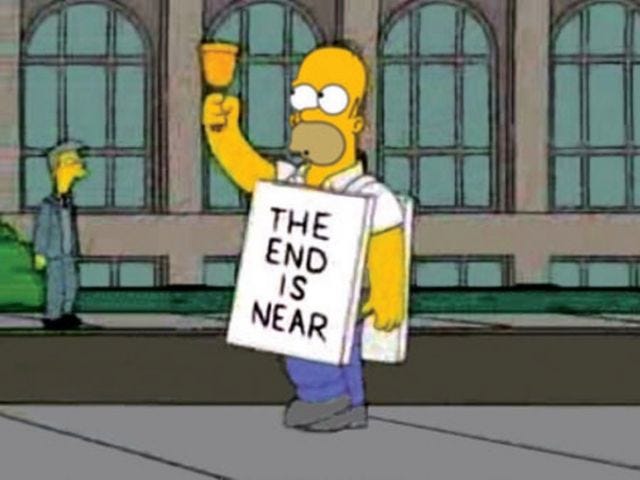
POP CULTURE SPIRIT WOW
I generally only do one newsletter a week, but this has been such a terrible week for Catholics, I wanted to send along something more.
I know some who subscribe to this newsletter are here for pop culture of it all, and others are a little more church people. As you know, I try to swim in both lanes, and I love doing it. But this episode is a little more Catholic than most.
If religion is not your thing, I’ve got some links at the end just for you. Enjoy. We’ll see you when we get there.
My Church People, gather close. Let’s talk a minute. ++ A Multiple Choice Question:
Right now, I feel like:
A)
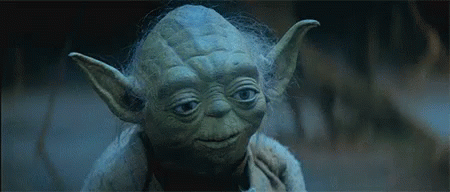
B)
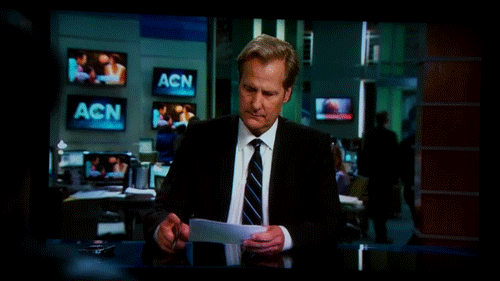
C)

D)

Always fun to remember Alderaan was not only Leia's home
but blown up by her dad's boss.
Um, is all of the above an option?
The story out of Pennsylvania just came so completely out of nowhere. How is a story like that still possible sixteen years after the press first started to investigate the Church? And if that’s possible – and the McCarrick story too – what the heck else is still out there? It’s so far beyond the breaking point.
My own general inclination is that the bishops as a group need to finally face what they as a body have put the Church through. I don’t mean that in terms of some dramatic comeuppance, but in the way that all of us Christians are invited (okay, usually forced, kicking and screaming) to face our failures, see ourselves as we truly are and the cost that has had upon others, and through that experience to change.
I’m guessing to a lot of church leaders that will sound kind of redundant, because individually they’ve already done that. Or they were appointed long after all these terrible decisions were made. They might look to the reactions coming from Pennsylvania and think to themselves, I understand the outrage, I feel it too, but frankly we’ve already got that fixed.
Personally, I don’t believe that’s the case. Within the Jesuits, I’ve seen us respond to the abuse crisis with significant changes of procedure, but sixteen years on I have yet to see us consider the broader questions of culture that allowed such things to go on for so long. I tend to think we do better on issues of power and secrecy than many dioceses; our structures are built around personal transparency in a different way than other groups. (Also, we actually take a vow that we won’t aspire to be in charge; and generally if you want to be sure not to be considered for superior, provincial or whatever, just tell people you’re interested.)
Still I think we share with the dioceses a general lack of that deeper reflection. We’ve put in place structures designed to prevent such terrible things from happening again, but we have not asked the bigger questions, or faced the deeper sin of it all. It’s a bit like the so-called “dry drunk” phenomenon – the action has changed, but we’ve not yet gone to the deep dark stuff which would open the doors for real conversion and a new life.
For me, that’s the question: Are the bishops and other church leaders willing to go to such a place? And it speaks to the question of self-interest, really; for those who run our dioceses and orders, what is more important, the mission of Jesus and the people of God or their own standing – their power or status, for instance, or desire for stability, or some certain theology they hold?
It’s the same question we’ve seen play out in other ways over recent years. The translation of the Mass was changed not out of any pastoral concern or sense that it would bring us closer to Christ, but a specific conservative ideology of Church. The debate around divorced and gay Catholics, the persecution of people like Fr. James Martin who have simply restated the Church teaching that LGBTQ Catholics are children of God and tried to reach out to them, has again no connection to the way that Jesus lived and treated people, or what is pastorally sensitive (and just plain sensible). It’s been all about maintaining a certain point of view or image of Church.
Our sense of the place of women in the Church and understanding of sexuality in some cases depends upon thinking that is centuries old (in some cases millennia). We say that’s a feature, the Church never changes, etc. etc. But in so many cases it’s clearly instead a bug, a glitch, a refusal to bring our sense of the world into conversation with the challenging life of Jesus.
The attacks on Pope Francis from certain wings of the Church are much the same; here’s a Pope standing so clearly for the important things – refugees, the environment, prisoners, the sick, and above all the call of mercy – and one that has given hope not just to Catholics but people all over the world. And yet in some quarters he is persona non grata. They can justify it however they want, but step back and it’s pretty hard to find any sort of coherence between such a stance and Jesus Christ. Because it’s not about Jesus, it’s about power and status and their theological positions (which, to no surprise, tend to reinforce their power and status).
What’s more important, us or Jesus? My life or others’? That’s the question the bishops and other church leaders face, as it is the question we all face as Christians. And while some of our leaders have already done the hard work of facing that humbling question, their broader community clearly has not. ++ Ready for something hopeful? Here’s a moment from the last couple weeks that’s really helped me.
For a lot of years now I’ve had this image in my head of a future Catholic Church looking a lot like the early Medieval period we call the Dark Ages. Small around-the-dinner-table communities like little candles in the night, maintaining the faith while most of the world has moved on.
Doesn’t that sound hopeful?

I know. But at various times, when I look at the declining numbers of Jesuits or seemingly of practicing Catholics, it has kind of resonated. The faith’s not going to die, but maybe the structures around it will collapse for a while, I’ve thought.
Then last week I was visiting Canberra, the capitol of Australia, and I got invited to this Catholic reading group. Which sounded like it would be kind of boring (hi, I’m the priest who insists on trying to get you to read comic books), but instead it turned out to be this very committed and thoughtful group of Catholics talking deeply about their own lives and questions. A couple of them were priests, and a couple were ex-priests (and probably ex-nuns), but there was a striking egalitarianism. Rather than Father and his followers, this was a community.
And as I was sitting there it hit me, this is the Church I’ve been imagining. And instead of being sad it’s alive and beautiful.
The numbers of Catholics going to Mass in the U.S. has been declining steadily for some time. And you’ll hear people talk about how to get them back, but I honestly think short of catastrophe (or, at least for a time, their own kids) that’s not likely.
I was reading recently about a company that always tries to re-sign its best employees long before their contracts are up. The reason, they explained, is they’ve learned that that moment when things are in question creates a kind of freedom in the employee to imagine other options. Loyalty gets trumped by possibility, and the company can suffer.
Whether it’s been all these years of abuse stories or perhaps a certain lack of style or depth in some of our Masses, the Church has given Catholics plenty of those moments to realize they can reconsider. And many have. And what reason do they have to come back?
But instead of that being a bad thing, maybe it’s a breadcrumb, pointing us to new ways and spaces of interaction. Maybe the Church of the future is not big and highly centralized and institutional. Maybe it’s small communities relying upon one another and the Spirit to nourish and guide them. Maybe it’s Christian Life Communities and faith sharing groups and volunteer opportunities and reading clubs.
Jesus said “Where two or three are gathered, there am I with them”, not “Where two or three are gathered come to my thing and do stuff my way.” So maybe we need to see our present circumstance like that.
In any case, it gave me a lot of hope. Candles in the darkness sound kind of terrible, but in reality they spread a lot of light.

++
I wonder how you’re doing out there. If you’re hurting, I hope you can give yourself the space to just feel it, let it burn, cry it out, whatever you need. Sometimes religious people think they’re supposed to get to forgiveness right away. I see some bishops who I generally admire saying right now is a time for us to pray for penance and absolution. Slow down, brother. You don’t get to push people towards forgiveness right now. They get to be mad or sad or whatever for a good long time, and your job is to take it and let it and them change you.
(Also, not for nothing, we the Church have been going through the penance on this for 16 years. Don’t tell us we need to pray for absolution. This is not about us, it’s about you.)
For the bishops and other leaders, conversion is a matter of facing their sins. For the rest of us, I think the real conversion starts with embracing however we feel and letting it teach us and guide our action.
Anyway, I just want to say I’m here with you, too. I’m a priest and in some ways that means I’m potentially part of the problem. (It is a real dance between the raindrops sometimes, wanting to be a disciple who expresses God’s loving mercy, and not being coopted into perpetuating structures of abuse.)
But I hope maybe together we are like one of those little medieval communities gathered around a candle; sometimes we talk about God and sometimes we talk about Marvel super hero movies, but we’re here on the road together, sharing our faith.

++ LINKS ++
Pop culture people, you still with us? Thanks for waiting up. A couple thoughts and links for you.

First of all, I don’t know if you saw this story about how much the success of the Marvel movie franchise is tied to the world financial crisis, but it’s such an interesting piece. I had no idea, for instance, that Marvel’s financing for its first films, Iron Man and The Incredible Hulk, was so incredibly well-timed. The company, which had been through bankruptcy a couple years earlier and had pawned off to FOX and Sony what seemed like its biggest properties – the X-Men, Spider-Man -- was a terrible bet when they went looking for money in the early 2000s. But we were still in the casino era of bet on everything, money gonna rain, and so someone (Merrill Lynch, if you can believe it) was willing to take the risk.
Just months after those first films debuted, the collapse happened and those kinds of gambles were immediately impossible – and remain so even ten years later.
Writer Abraham Reisman ties the success of the films to the collapse, too. “They allow you to escape the present — superheroes are Proustian madeleines for childhood longing and the comfort you felt while riding your bike to the comic-book store. Within the friendly confines of the MCU, all shall be well and all manner of things shall be well.”
First of all, “Proustian madeleines for childhood longing”...wow.
Second, I think I disagree with him on this. In part, anyway. I mean the movies do work because they’re so damn entertaining. But Black Panther is also a pretty bold vision of race and gender. Thor: Ragnarok start to finish is about the experiences of being a refugee. Avengers: Infinity War is 100% a story about our own deepening environmental crisis, and the question of who will survive. (We all think the ending is so great, but wait until it happens to our descendants....)
Marvel films never rub your nose in it, and in fact sometimes maybe the real world stuff is not obvious enough. You can definitely walk away from Ragnarok without ever thinking about refugees. But it is right there. Even the first Guardians of the Galaxy seems to me about something, family and the need for connection. In fact in some ways I think of that film as less escapist than most of the others.
Anyway, it’s a great article. Highly recommend it.
(One other quote: “Roger Ebert was fond of saying movies were like a machine designed to create empathy; MCU movies are a machine designed to create obsession.”)

If you’re in a Marvel movie mood, you might also check out this old piece about the major things Joss Whedon brought to the Marvel universe, like setting up the typical hero story conventions, then pointing them out and making fun of them; or finding whatever is seen as most sacred – Cap’s shield, Tony’s smarts, Thor’s power –and relentlessly mocking it; or, his classic double punch line, where you get the set up, then the funny release, and then a second release which either undermines the first one or goes a totally different direction.
And above all, there’s the Joss constant return to the human point of view. So in the second movie, the key character turns out to be Hawkeye, the guy with no powers who is totally out of his element (and constantly mocked for it, too). He’s a nobody, and he’s the one given the big speech of the film.
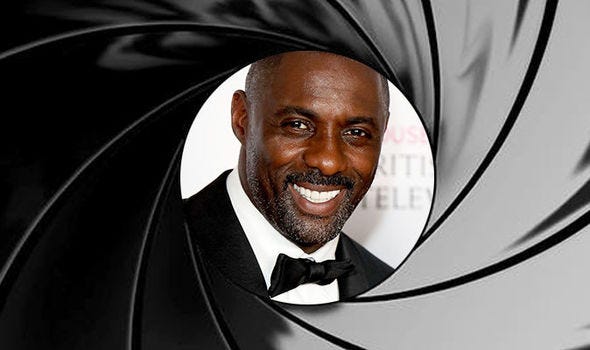
Elsewhere this week, there was this funny oral history of the decade of rumors that Idris Elba was about to be made James Bond. It includes this great statement from Elba: “I’m probably the most famous Bond actor in the world,” he opined in 2015, “and I’ve not even played the role.”
The piece also begs the excellent question, why would we even want more Bond stories at this point? “If Hollywood had more diverse casting, more diverse storytellers, and more diverse kinds of stories, there’d probably already be a new breakout mega-role available to Elba that would be fresh, elegant, and charming. Hell, it might even make James Bond — with his shitty shaken cocktails, his rapeiness and his horsey midcentury songwriter face, sorry — feel like the dated patriarchal colonial fantasy he’s always been.”
Wandering elsewhere, This piece from a couple months ago about Mark Hamill asking John Williams why Luke never gets a song of his own kind of knocked me down.
I also can’t remember if I already posted this interview with director Richard Donner about the making of Superman (because: old), but either way I’m doing it again because I just read it and it is fantastic.
Late night comedian Amber Ruffin had this funny video on Seth Meyers about remaking art from problematic artists. (The Woody Allen moment is just so good.) There was also this amazing play on the whole Bill Murray-shows-up-everywhere schtick.
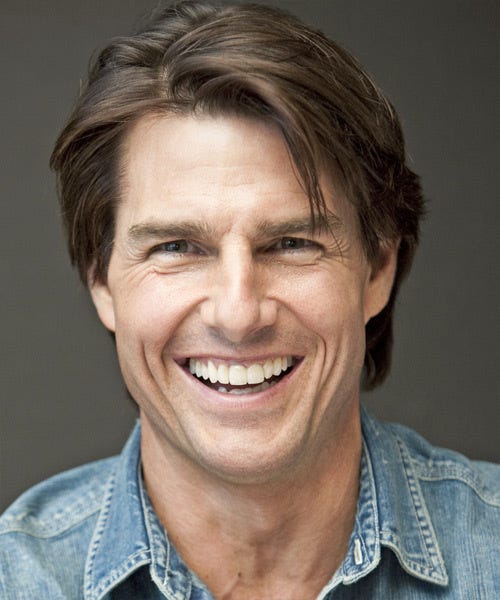
Finally, I don’t know if you happened to check out that Tom Cruise story I posted a few weeks ago. I only got through it myself the other day. But there was a story in there that really stood out:
After the failure of Elizabethtown, Cameron Crowe wasn’t sure about directing another movie. Then Tom Cruise took him for a drive, and the two of them ended up on the set of Knocked Up. “Mr. Cruise introduced Mr. Crowe to Mr. Apatow, who joked that he’d been stealing for years from Say Anything, the sharp-witted teen comedy that first established Mr. Crowe as a director in 1989,” the New York Times reported. “Cruise sidles up to me and goes: ‘See? Get out of your house, man, it’s fun,’” Crowe recalled to the Times. “And that’s when it felt like, yeah, it’s time to direct again.”
Lots of good reasons to hide in our house these days. (So many.) But Cruise’s comment really hit me. Bunkers are for surviving, but they’re not really for living.
And hey, who knows, if you get out of your house, it might be fun.
I’m going to be out touch as of Saturday for a couple weeks. But that’s then. I’ll see you Friday.
Here we go.

